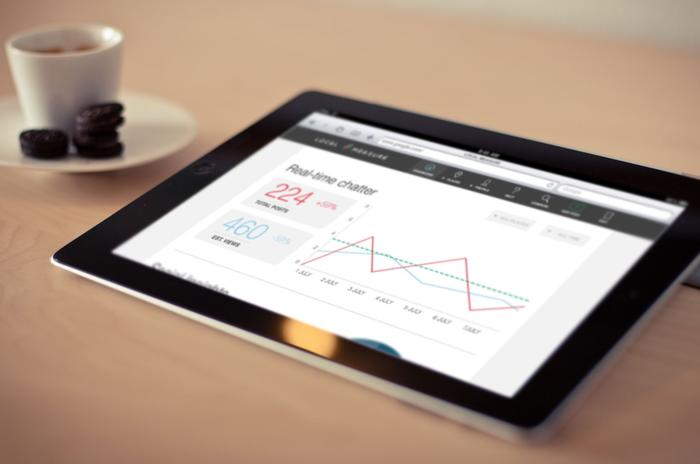Sydney-based Roamz switched focus from consumer to business after discovering that its location-based platform for monitoring social media appealed to retailers around the world.

The (original) pitch
Roamz founder, Jonathan Barouch, told Techworld Australia his idea was to bring together siloed social media data based on location.
“At an event, people are tweeting photos, they’re Facebooking, [and] they’re checking in on FourSquare,” but there was no way to see all the data together.
With Roamz, Barouch sought to bring the data together in real time “so that a consumer who is about to step into a restaurant can go see what people have said on Instagram, Twitter or Facebook.”
Roamz pulls public data from Facebook, Instagram, Foursquare and Twitter and “normalises the data and chucks it into buckets around location,” he said.
Funding it
Coming off the 2010 sale of his first startup, Fast Flowers, Barouch was able to seed Roamz himself with the first $200,000 in funding.
He then pitched Roamz to “a number of big corporates and investors both here and [Silicon Valley].” The Valley investors wanted Barouch to move to California, so he decided to focus on Australian media and telecom companies.
“I had two or three who were interested and ultimately I did a deal with a listed company called Salmat, a mid-cap marketing form that was going into digital.”
Barouch admitted that his success with Fast Flowers created more interest in his Roamz pitch. “I was almost more pitching myself,” he said. “Had I been a first-time entrepreneur maybe five or six years longer ... it just wouldn’t have happened.”
Pivoting to B2B
When big US retailers called Barouch in to their offices, he said he was surprised to learn they weren’t seeking advertising on Roamz. In fact, they wanted a business flavour of Roamz to give them better visibility on what shoppers were saying about their stores, he said.
While other software allows retailers to monitor social media chatter, the location-based nature of Roamz meant that retailers could view any customer feedback communicated inside the store, even if the shopper didn’t specifically name the brand.
“I’d like to say that it was all calculated but it wasn’t,” Barouch said. “We built the technology and business tools to support the consumer app, and we found out that the business tools were where the real value was.”
Barouch shifted the company’s focus to B2B, branding the business tools Local Measure. “We launched about two weeks ago, and the traction has just been phenomenal.”
The first customers include “big chains across multiple countries,” small businesses and a pilot with a financial institution, he said.
Selling it
The consumer-focused Roamz remains free while the company charges a subscription fee for Local Measure. The rate for a single store is $59 per month, while up to three stores is $99. Other rates are available for large enterprise customers.
The Roamz mobile app is available on Apple iOS and Google Android. The Local Measure tools are Web-based so it works on most browsers and mobile devices. The Web tools are not mobile-optimised, but the startup may develop mobile apps in the future, Barouch said.
Local Measure has an early focus on the Asian market, Barouch said. The volume of social conversations in an Asian store can be 15 to 20 times those in an Australian store, he said.
The startup plans to keep its headquarters in Australia, but may later open offices in the US and other countries, he said. “We’re not going to create a global company just being in Sydney.”
Startup scene
Australian startups are rising in a harsh environment, said Barouch.
“Despite the best efforts of the government to kill off any possible any possible wave of innovation, we’re like cockroaches—we’re flourishing.”
The last six to 12 months has seen a “renaissance boom of startups,” he said. “It kind of feels a bit like how it was in 1999-2000 when I did my first startup. You’ve got really clever people working on really brilliant, globally disruptive ideas.”
“We’re starting to get the ingredients to form a local ecosystem, but [it’s] a long way to go, and a lot of folks need to step up to the plate—including government—to make it happen.”
Government should make policies to encourage high-growth, early-stage startups, Barouch said.
“I certainly don’t think it’s up to the government to fund startups ... but given how early we are, they need to encourage super funds to unlock some super, they need to help get the local [venture capital] industry going [and] get global VCs focused on Australia.”
In addition, the government should “start a public dialogue about why technology companies are really important and maybe more important to Australia’s future than the mining companies.”
Startup snapshots:
Tap-To
Tapestry
Mathspace
Ollo Mobile
CryptoPhoto
OneConfig
If you’ve got a startup or know about a cool new Australian business, please email Adam Bender at adam_bender@idg.com.au or on Twitter (@WatchAdam).
Follow Adam Bender on Twitter: @WatchAdam
Follow Techworld Australia on Twitter: @Techworld_AU
